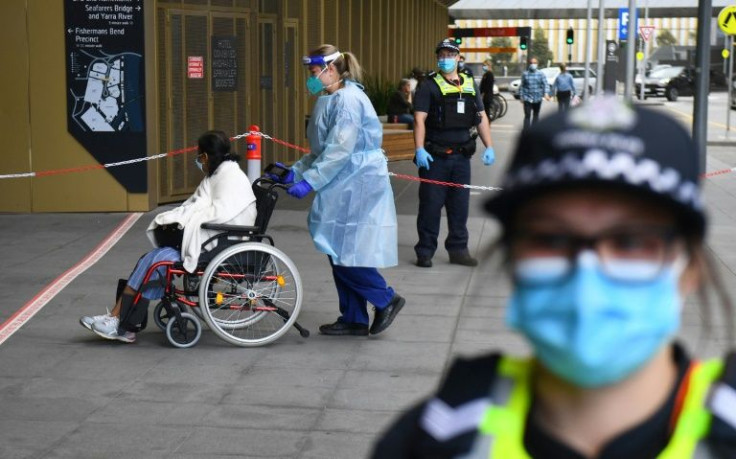Australia Discovers ‘Omicron-Like’ Variant That Evades Typical COVID-19 Tests
KEY POINTS
- The “Omicron-like” variant is harder to track through PCR testing as it lacks the s-gene dropout feature
- Omicron has spread to 57 countries
- The WHO recently designated Omicron as a fifth “variant of concern”
The Australian state of Queensland has detected a new “Omicron-like” variant that shares about half of the original’s gene variations, but has the ability to evade typical COVID-19 screening, health authorities said Wednesday.
“We now have omicron and omicron-like,” Queensland Acting Health Chief Officer Peter Aitken was quoted as saying by Bloomberg. Aitken explained that the variant has adequate characteristics “to be able to classify it as omicron, but we don’t know enough about it as to what that means then as far as clinical severity, vaccine effectiveness.”
Aitken further revealed that the new variant was detected in a traveler from South Africa who tested COVID-19 positive Saturday. While the new Omicron variant has about 14 of the original’s genome mutations, it lacks the s-gene dropout feature. The feature makes the virus easier to track through PCR testing.
Australia’s Queensland state has found a new omicron lineage in a traveler who arrived from South Africa https://t.co/J8OMjQkK2x
— Bloomberg (@business) December 8, 2021
Questions have been raised about whether the latest discovery would hamper scientific studies on the full impact of the Omicron variant. Research on the strain’s virulence and the effectiveness of vaccines against Omicron is still underway. There has also been concern about new COVID-19 variants potentially mutating to infect cells faster or evade antibodies.
Omicron, which was first detected in South Africa on Nov. 24, has now spread to 57 countries around the world, the World Health Organization (WHO) was cited as saying by Anadolu agency.
The organization further noted that it is expecting hospitalizations to increase due to the variant and “there will be a time lag between an increase in the incidence of cases and an increase in the incidence of deaths.” The WHO designated Omicron as a fifth “variant of concern” after it first designated alpha, beta, gamma, and delta variants as concerning lineages respectively.
On Nov. 26, the World Health Organization named the Omicron variant of the coronavirus a new variant of concern, even as questions about its impact remain. Track its spread here. https://t.co/lvIfCIa8rj pic.twitter.com/hCtF6Og1p6
— The New York Times (@nytimes) December 3, 2021
Mark McGowan says Western Australia’s border will remain tightly shut as Omicron COVID cases begin to be recorded around the country. The federal government has agreed to delay the reopening of the country’s international borders | @jess_brown84 pic.twitter.com/aVS5DSQ5Ix
— 10 News First Boorloo (Perth) (@10NewsFirstPER) November 30, 2021
Last month, Australia announced that it was postponing plans to reopen borders to international flyers for at least two weeks.
Australian Prime Minister Scott Morrison said the government’s national security committee received advice from the country’s chief health officer to delay reopening after the first cases of Omicron were detected, Reuters reported. At that time, Morrison said in an emailed statement to the outlet that the decision was made to ensure Australia had adequate information about the concerning variant.
Australia logged a total of 220,555 confirmed COVID-19 cases as of Tuesday, according to Johns Hopkins University data. The country has recorded 2,065 deaths linked to the coronavirus.

© Copyright IBTimes 2024. All rights reserved.












